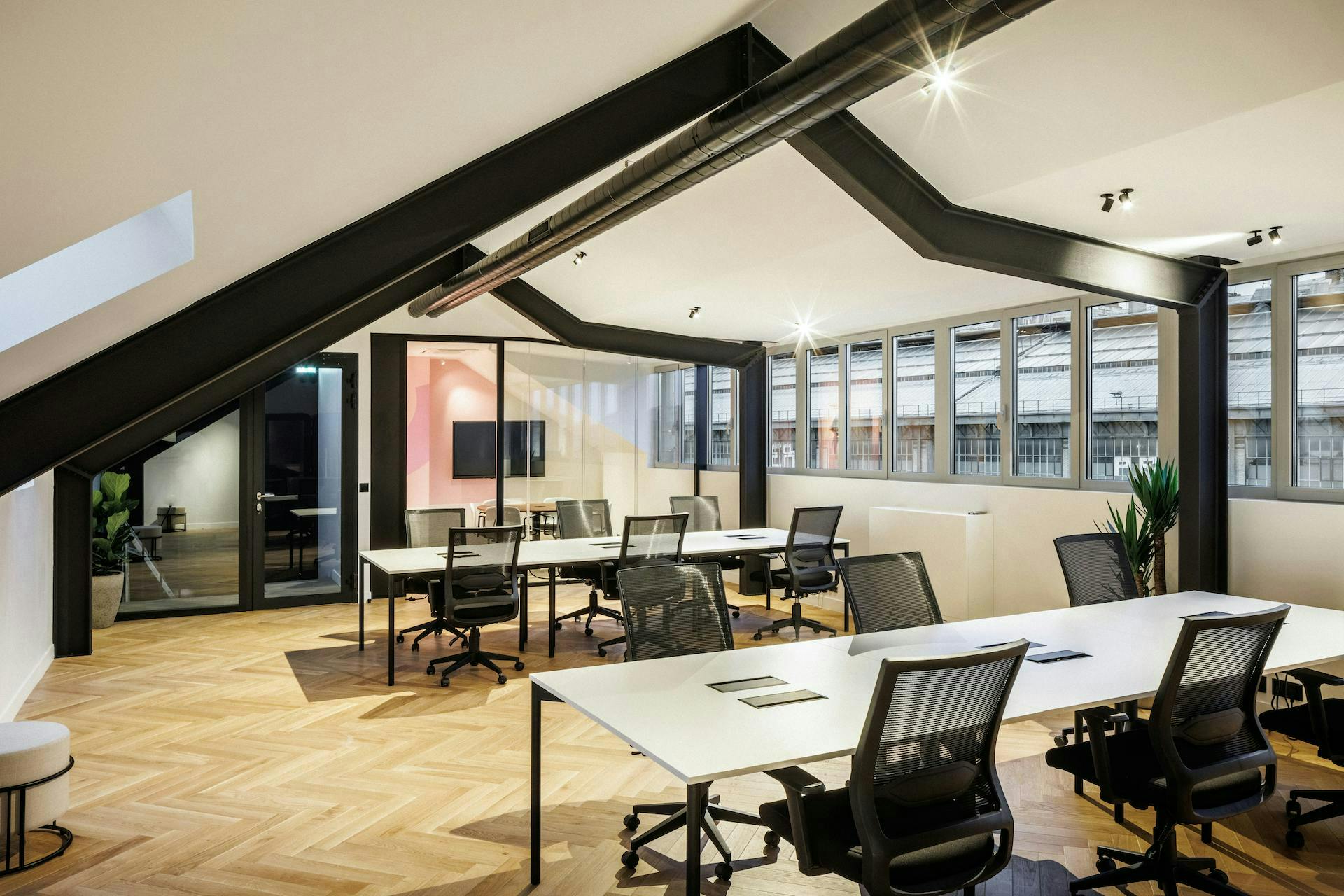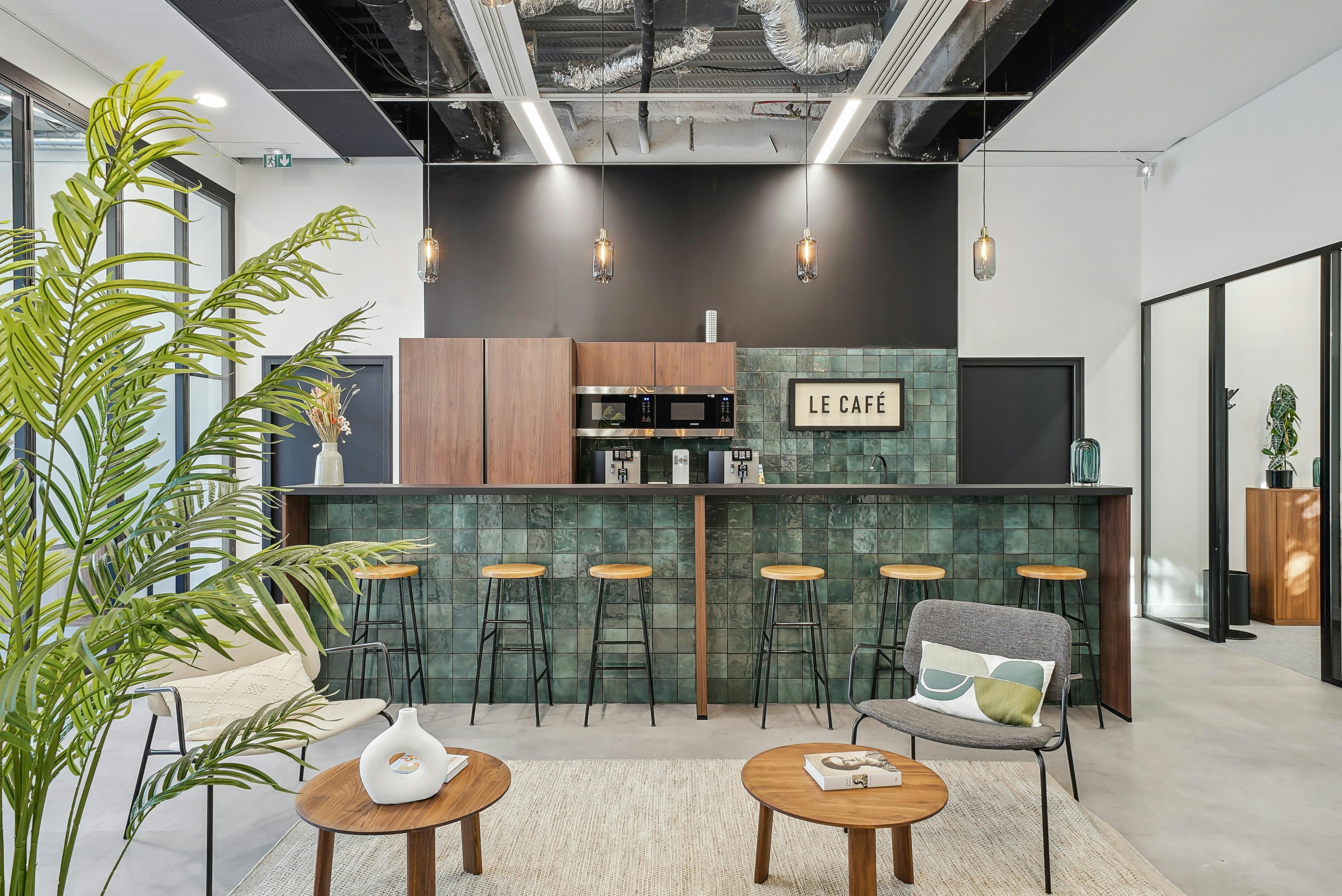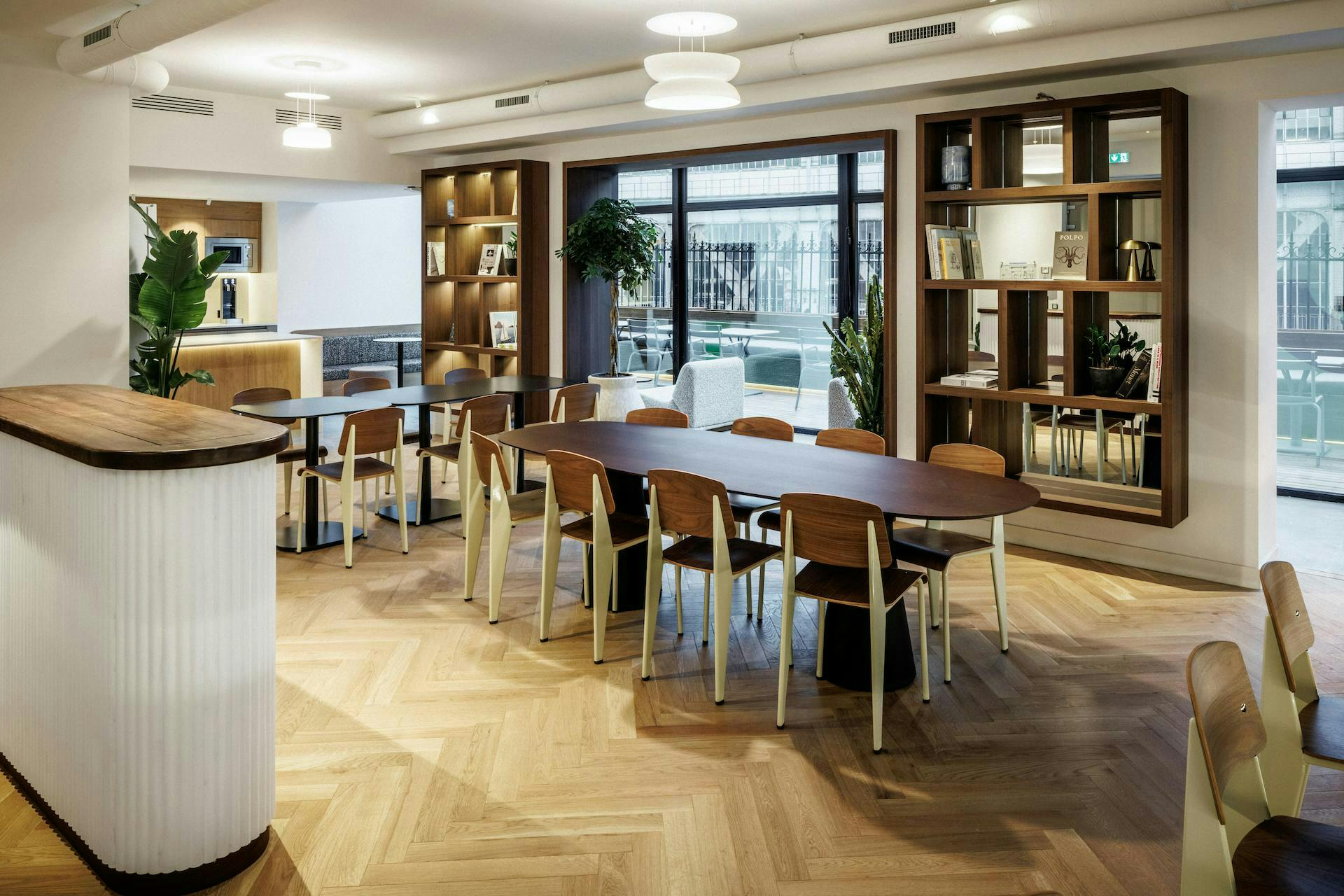

How do you design a company kitchen?
At the heart of the business environment, the space dedicated to the kitchen takes on considerable importance, far beyond its primary function of preparing meals. More than just a place to eat, the corporate kitchen is a unifying space, encouraging informal exchanges, strengthening cohesion between team members and contributing to a convivial atmosphere within the working environment.
However, there's much more to designing a catering area than simply arranging furniture and appliances. Specific regulations govern the organization and equipment of these spaces in the professional environment. What's more, the planning of this space cannot be standardized. It needs to be tailored to the specific parameters of each company, such as its size, the number of employees, but also the eating habits and specific needs of the team. Taking these factors into account is essential to designing a company kitchen that is functional, ergonomic and meets employees' expectations.
At Deskeo, we value the creation of workspaces that foster employees' professional and personal fulfillment. Today, we'd like to explore with you the importance of the kitchen space within companies, the regulations governing its layout, and the key elements to consider in helping you create an environment conducive to the well-being of your teams.
Obligation to have a company kitchen
For companies with fewer than 50 employees
Installing a kitchen on company premises is subject to specific regulations, which vary according to the size of the company. For companies with fewer than 50 employees, the installation of a kitchen is not mandatory. Nevertheless, in the interests of providing optimal working conditions and promoting employee well-being, many small businesses decide to integrate a relaxation area dedicated to meal preparation.
For companies with over 50 employees
For companies exceeding the 50-employee threshold, regulations require the installation of a kitchen or catering area. This requirement stems from the need to guarantee employees easy access to healthy, balanced meals, in line with occupational health and safety standards. What's more, the creation of such a space can encourage interaction between team members during lunch or coffee breaks, thus strengthening cohesion within the company.
Possible exceptions
Derogations from these obligations may be granted in certain specific situations, notably when the nature of the company's activity does not require the presence of a kitchen, or when alternative and equivalent solutions are put in place to guarantee employee catering, such as the use of collective catering services or the existence of catering facilities in the immediate vicinity of the premises.
What are the essential elements of a company kitchen?
The most important equipment
To ensure the functionality and practicality of a company kitchen, certain equipment is essential to meet the daily needs of employees. Here are the main items to consider if you're planning to fit out a company kitchen:
- Coffee machine: a must-have for coffee breaks and socializing.
- Microwave oven: essential for reheating employees' meals.
- Refrigerator: for food and meal storage.
- Hotplates or stove (depending on specific needs).
- Dishwasher or sink for cleaning utensils.
The importance of choosing the right furniture
The choice of modular furniture is of great importance in a company kitchen. Furniture that can be adjusted in height or easily moved, such as a modular table, allows the kitchen space to be optimized according to changing needs. This promotes better organization and flexible use of the kitchen, adapting to different uses and fluctuating staff numbers.
Recommended materials
When it comes to materials, opting for resistant, easy-to-maintain worktops and furniture is recommended. Stainless steel surfaces for worktops offer durability and hygiene, while furniture made from sturdy, easy-to-clean materials guarantees a long service life.
Harmony between functional equipment, flexible furnishings and a judicious choice of materials forms the basis for a practical, employee-friendly company kitchen, promoting a pleasant, efficient working environment.
How do you design a healthy, friendly environment?
The decoration of a company kitchen is not just a matter of aesthetics, it also plays a crucial role in the well-being and productivity of employees.
Thoughtful decoration, combined with a pleasant working environment, creates an atmosphere conducive to concentration, creativity and team collaboration. Bright, harmonious and aesthetically pleasing spaces can positively influence employees' state of mind, fostering commitment and job satisfaction.
What's more, well thought-out decoration can reflect the company's culture and values, reinforcing employees' visual identity and sense of belonging to their workplace. Well-chosen decorative elements can also help reduce stress, improve mood and create a more pleasant overall environment for employees.
Here's a non-exhaustive list of steps to follow for successful decorating:
- Assess needs and preferences: Taking into account employees' tastes and needs is essential. Encouraging employee participation in the choice of decoration can foster a sense of belonging to the shared space.
- Opt for soothing colors: Soft, neutral hues promote a relaxing environment. Favoring natural tones such as green or blue can induce a soothing atmosphere and enhance occupants' well-being.
- Create convivial areas: Creating relaxation zones with tables, comfortable chairs and, if necessary, plants encourages informal exchanges and team cohesion.
- Maximize natural and artificial light: Adequate lighting is essential. Encourage natural light wherever possible, and complement it with appropriate artificial lighting to ensure a pleasant working environment.
- Promote hygiene and cleanliness: Careful decoration that is easy to maintain is essential. Opting for resistant materials and easy-to-clean decorative elements helps maintain a clean and healthy space.
Our tips for an optimal company kitchen
For an efficient layout of your company kitchen, here are our recommendations:
- Optimize space: Use modular, adaptable furniture to maximize available space, allowing better circulation and versatile use of the kitchen.
- Think ergonomically: Arrange equipment to facilitate daily tasks. Place the most frequently used appliances in easily accessible locations to save time.
- Prioritize functionality: Choose quality equipment adapted to your specific needs. Choose versatile, energy-efficient appliances for efficient use.
- Encourage conviviality: Create pleasant, welcoming breakout areas to encourage exchanges between team members, thus fostering a collaborative working environment.
Creating a space that is practical, pleasant and compliant with standards is not always easy. If you'd like us to help you with your interior design project, contact us. Deskeo specializes in the design of professional spaces, and we offer personalized advice to ensure the success of your project.

Contact Us
We find your Perfect fit!

